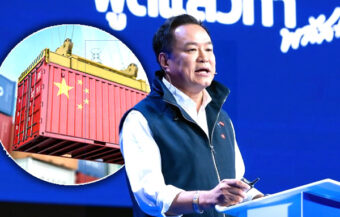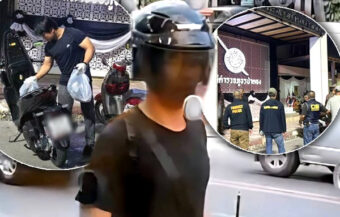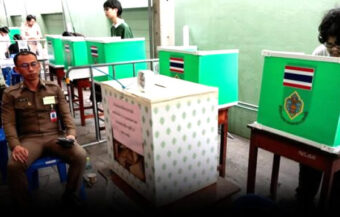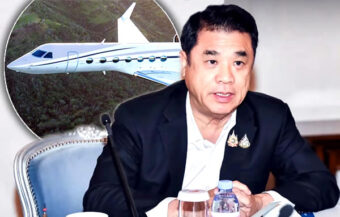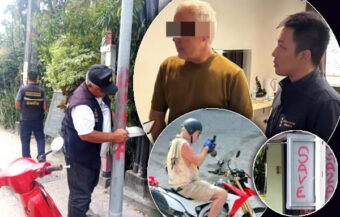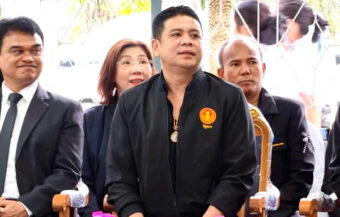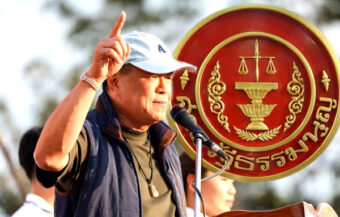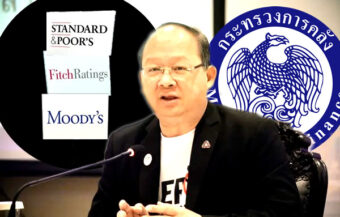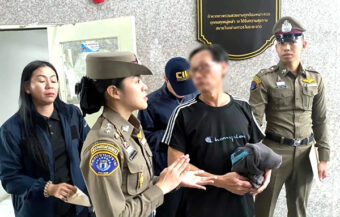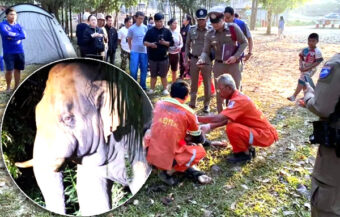PM Anutin vows there will be no casinos as Thailand prepares for March-April 2026 election, pledges strict law enforcement, constitutional reforms, agricultural support and round-the-clock government action to tackle social and economic challenges.
Prime Minister Anutin Charnvirakul on Wednesday, after his first Cabinet meeting, unveiled his agenda as Thailand’s new leader. He confirmed the House of Representatives will be dissolved by the end of January 2026. Anutin also addressed constitutional reform the same day the Bhumjaithai Party revealed its plan with the progressive People’s Party. The proposal calls for a 99-seat constituent assembly, deliberately excluding direct public participation, in line with a recent Constitutional Court ruling. Crucially, he ruled out any legalised casinos in Thailand. The Prime Minister announced that his government’s policy statement will be presented to Parliament next week, signalling a decisive, no-nonsense start to his administration.
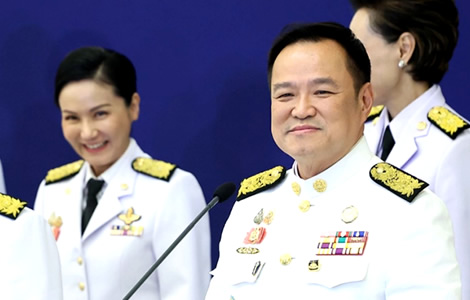
After the cabinet swearing-in ceremony on Wednesday, Prime Minister Anutin Charnvirakul outlined key elements of his forthcoming Policy Statement to Parliament. The statement, required under the Constitution, sets the government’s agenda and legislative priorities. Consequently, Anutin confirmed that he expects the dissolution of the House of Representatives by the end of January 2026.
This move will be followed by a General Election, likely held in March or April next year. At the same time, the government is preparing legislation for a constitutional referendum to take place alongside the election poll.
Meanwhile, the Bhumjaithai Party submitted a proposed constitutional amendment on Wednesday. According to the proposal, a constituent assembly of 99 members will be chosen by Parliament. Of these, 77 will represent each province individually.
Bhumjaithai proposes 99-seat constituent assembly with members appointed by MPs with public excluded
Moreover, the bill requires approval from only 20% of Senate members, or 40 senators, for adoption. This provision has generated debate over the ease with which constitutional changes could pass.
Prime Minister Anutin also signed the draft policy statement, emphasising that Parliament will dissolve at the end of January 2026. He reaffirmed that a General Election is expected to follow in March or April. Furthermore, he confirmed that his government will not construct any entertainment complexes that include casinos. In addition, Cabinet operations will proceed without holidays, with meetings convened as necessary to address urgent issues.
At 10:00 PM on September 24, 2025, Anutin addressed reporters following the first special Cabinet meeting. He stated that all ministers had been briefed on critical agenda items. Subsequently, he provided a summary of the government’s priorities.
The Cabinet reviewed the draft policy statement for Parliament and resolved to approve it. Confirmation from the Speaker of the House is expected early next week.
Policy statement. Confirms Parliament dissolution with General Election expected in March or April 2026
The Cabinet’s policy focuses on four immediate priorities. Firstly, the government will advance the “Half-Half” project to reduce travel and transportation costs. This initiative aims to lower living expenses for citizens while supporting economic accessibility.
Secondly, the administration will promote renewable energy. By making renewable energy more convenient and accessible, the government hopes to improve environmental sustainability.
Thirdly, security matters are high on the agenda. In the Thai-Cambodian border dispute, authorities will employ both military and diplomatic measures to protect sovereignty. Moreover, officials are tasked with safeguarding citizens’ interests and maintaining regional stability.
Fourthly, disaster preparedness will be enhanced. The government plans to improve early warning systems and response mechanisms, ensuring timely assistance to affected populations. Regulations will be amended to allow officials greater flexibility, while preventing inefficiency and corruption.
Anutin pushes four immediate priorities covering transport, renewable energy, security and disaster plans
Social threats will also be aggressively addressed. The Prime Minister confirmed that drug trafficking, gambling networks, online scams, and fraud will face strict enforcement. Government officials who neglect their duties may face legal prosecution and possible dismissal. Anutin emphasised that his administration will act decisively to eliminate threats harming public welfare and economic stability.
“This government will not support gambling businesses. There will be no casinos, and online gambling remains illegal,” he stated firmly.
Agriculture, meanwhile, remains a priority. Falling prices for rice, cassava, and other crops have prompted immediate intervention. The government plans to reduce production costs, particularly for fertilisers. Additionally, authorities will prevent illegal imports from neighbouring countries, ensuring price stability. Agricultural innovation, including smart farming practices, will be promoted to enhance production efficiency and long-term sustainability.
Policy commits to eliminating social threats, stronger agriculture to stabilise prices and support innovation
Public health initiatives will focus on accessibility for all citizens. Education laws are also being reformed to prepare the nation for rapid technological change. Furthermore, the administration is committed to a low-carbon society. These measures aim to boost Thailand’s competitiveness in global markets while addressing climate concerns.
Legislatively, a constitutional referendum is planned. Citizens will have the opportunity to participate in drafting a new constitution on the day of the next general election in 2026. The referendum represents a significant step toward greater public participation in governance.
Anutin reiterated that the House of Representatives will dissolve by the end of January 2026. Elections are projected for March or early April. “As Prime Minister, I will dissolve the House within four months of presenting our policy statement. We aim to restore power to the people and ensure their right to vote promptly,” he explained. The Election Commission will oversee the process to ensure fairness and transparency.
Anutin confirms constitutional referendum with General Election in 2026, paving the way for a new charter
The government policy statement has already been signed, with parliamentary debate scheduled from September 28 to 30. The Cabinet requested that the Speaker of the House receive the statement within this three-day window. All parliamentary debates on the policy are expected to take two days, consistent with previous administrations.
Cabinet operations are being structured for efficiency. Agencies are directed to streamline workflows, reduce redundancy, and eliminate unnecessary steps. These reforms aim to accelerate public service delivery while maintaining legal compliance.
In addition, Cabinet members are required to work around the clock, seven days a week, to address urgent policy matters. Meetings will be convened as needed, rather than adhering to a fixed schedule.
“Today, we have received a wonderful blessing from heaven. We are grateful for the support of His Majesty the King. We are ready and committed to serve the nation, administer the country, and support the Thai people,” Anutin said during the press briefing.
PM pledges round-the-clock operations to accelerate service delivery and legislative momentum
At the same time, Thailand faces economic pressures. Fitch Ratings downgraded the country’s credit outlook from stable to negative, citing political uncertainty and weakening growth prospects. Fitch affirmed the long-term foreign-currency issuer default rating at BBB+.
Thailand’s gross government debt reached 59.4% of GDP in August, close to the median for BBB-rated countries. Years of stimulus spending and repeated delays in fiscal consolidation contributed to this level. Fitch follows Moody’s Ratings, which recently downgraded Thailand’s credit outlook as well.
The downgrade poses a challenge for Prime Minister Anutin, who has pledged to revive Thailand’s sluggish economy. The new government emerged from a political crisis, following the court-ordered removal of former Prime Minister Paetongtarn Shinawatra for ethical misconduct. His cabinet was formally sworn in by His Majesty the King on Wednesday evening.
The Thai baht traded near its weakest level in two weeks against the US dollar. Despite this, the currency has risen nearly 7% this year, after hitting a four-year high earlier in September. Thailand’s economy is forecast to grow only 2% this year.
Thailand faces downgraded credit outlook and economic challenges as political uncertainty weakens growth
This pace is roughly half that of regional peers such as Indonesia and the Philippines. Several factors contribute, including a 19% US tariff, weaker tourism, high household debt, and a strong baht.
Fitch highlighted fiscal risks. Delays in consolidation and continued stimulus increase medium-term risks. Anutin’s pledge to hold elections within four months may also add short-term fiscal pressures. The opposition People’s Party conditioned its support on this four-month election schedule.
If the schedule holds, elections will likely occur in mid- to late March. Forming a new government may require weeks of negotiations, delaying both fiscal disbursement and budget planning for 2027. The minority government is expected to use most available fiscal space. Fitch projects a deficit of 4.6% of GDP in 2025 and 4.3% in 2026.
Thailand’s BBB+ rating benefits from strong external finances, a sound macroeconomic framework, and an ability to service debt, mostly in local currency at low cost. However, high household leverage and lower per capita income compared to peers remain challenges.
Fears of fiscal risks and potential budget delays as a General Election is confirmed by Prime Minister
Household debt has fallen to 87.4% of GDP in early 2025 from a peak of 95.5% in 2021. Approximately 30% of this debt consists of consumer loans, vulnerable to weakening employment conditions.
Nevertheless, banks maintain strong reserve coverage and capitalisation. Fitch said these buffers should mitigate risks if asset quality deteriorates.
New cabinet sworn in before the King and Queen at a time of political instability and economic malaise
Former PM Paetongtarn heads to Sisaket to battle for Pheu Thai in a contest with the new PM’s Bhumjaithai
Anutin making all the power moves to consolidate his position as Prime Minister as opposition looks on
Undeniably, Prime Minister Anutin Charnvirakul’s government has set clear priorities: economic reform, social stability, agriculture, health, energy, and constitutional reform. At the same time, Thailand faces fiscal and economic pressures, highlighted by Fitch’s downgrade.
The interim government’s focus on operational efficiency, strict law enforcement, and urgent problem-solving signals a determined approach. Cabinet members are prepared to work without holidays, convene multiple meetings per week and push legislation swiftly. These measures aim to address national challenges while restoring confidence among citizens and investors alike.
Join the Thai News forum, follow Thai Examiner on Facebook here
Receive all our stories as they come out on Telegram here
Follow Thai Examiner here
Further reading:
Anutin planning eight-month economic programme as his PM tenure will extend to the next government
2nd Army chief warns Acting PM Cambodian regime cannot be trusted and that border must stay closed

